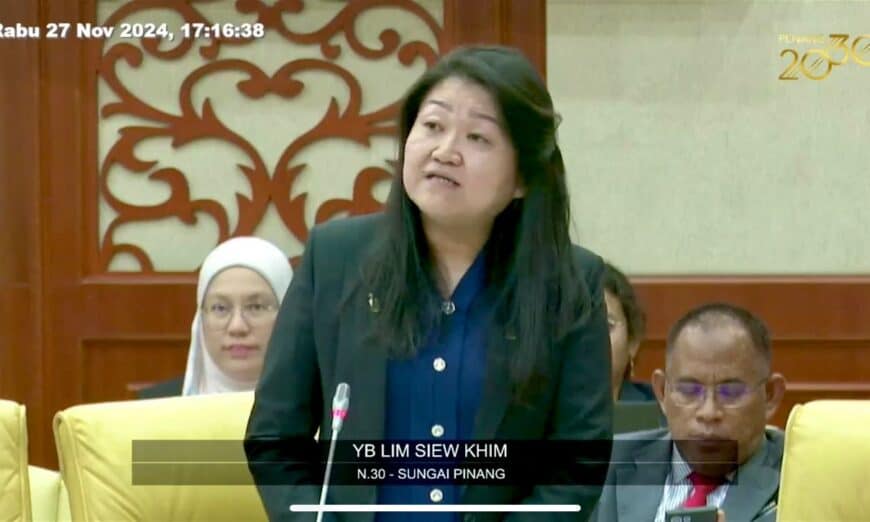THE Penang government remains dedicated to combating hardcore poverty through various social welfare initiatives.
State Social Development, Welfare, and Non-Islamic Religious Affairs Committee chairman Lim Siew Khim (PH-Sungai Pinang) highlighted these efforts during her winding-up speech at the State Legislative Assembly today.
It was reported recently that Penang had the highest number of hardcore poor households, with 1,650 household heads (Ketua Isi Rumah, KIR) living in extreme poverty as of 31 October 2024. However, Lim shared that a ‘whitening process’ conducted by the state has significantly reduced this number to just 142 KIRs as of 24 November 2024.
“Through the whitening process and cross-checking efforts by relevant agencies, Penang has seen a decrease in the number of hardcore poor households,” she said.
According to Lim, the data on the hardcore poor is recorded via the e-Kasih system, coordinated by the Penang State Development Office and Implementation Coordination Unit (ICU) at the Prime Minister’s office.
“Data is collected through a census process, relying on verbal information provided by KIRs. However, some may claim they are unemployed or receive no financial aid to qualify, as no supporting documents like pay slips are required,” she added.
From January 2025, the state government will increase the per capita income rate for the Bantuan Agenda Ekonomi Saksama (BAES) from RM260 to RM322.
“BAES has simplified the application and approval processes, enabling assistance to be delivered to recipients more quickly.
“The official application processing period is 30 days. However, the average processing time has been reduced by the state Social Welfare Department (JKM) to just 15 days from the submission of complete documents,” she said.
Lim affirmed that JKM remains consistent in investigating reports from the state assemblymen or MPKKs (Village Community Management Councils) regarding B40 families in need.
Apart from that, Lim said the Mutiara Foodbank Unit has played a vital role in providing food assistance to needy families.
“Since its formation in 2017, the unit has successfully distributed 1,700 tonnes (1,777,329 kg) of food, benefiting nearly 121,957 deserving families across Penang.
“The individuals themselves must take part in empowerment programmes to improve their economic situation and achieve long-term positive outcomes.
“We also urge all state assemblymen, through their MPKKs and JPWKs (Women and Family Development Committees), to guide communities in proactively improving their quality of life,” she added.
Story by Tanushalini Moroter

